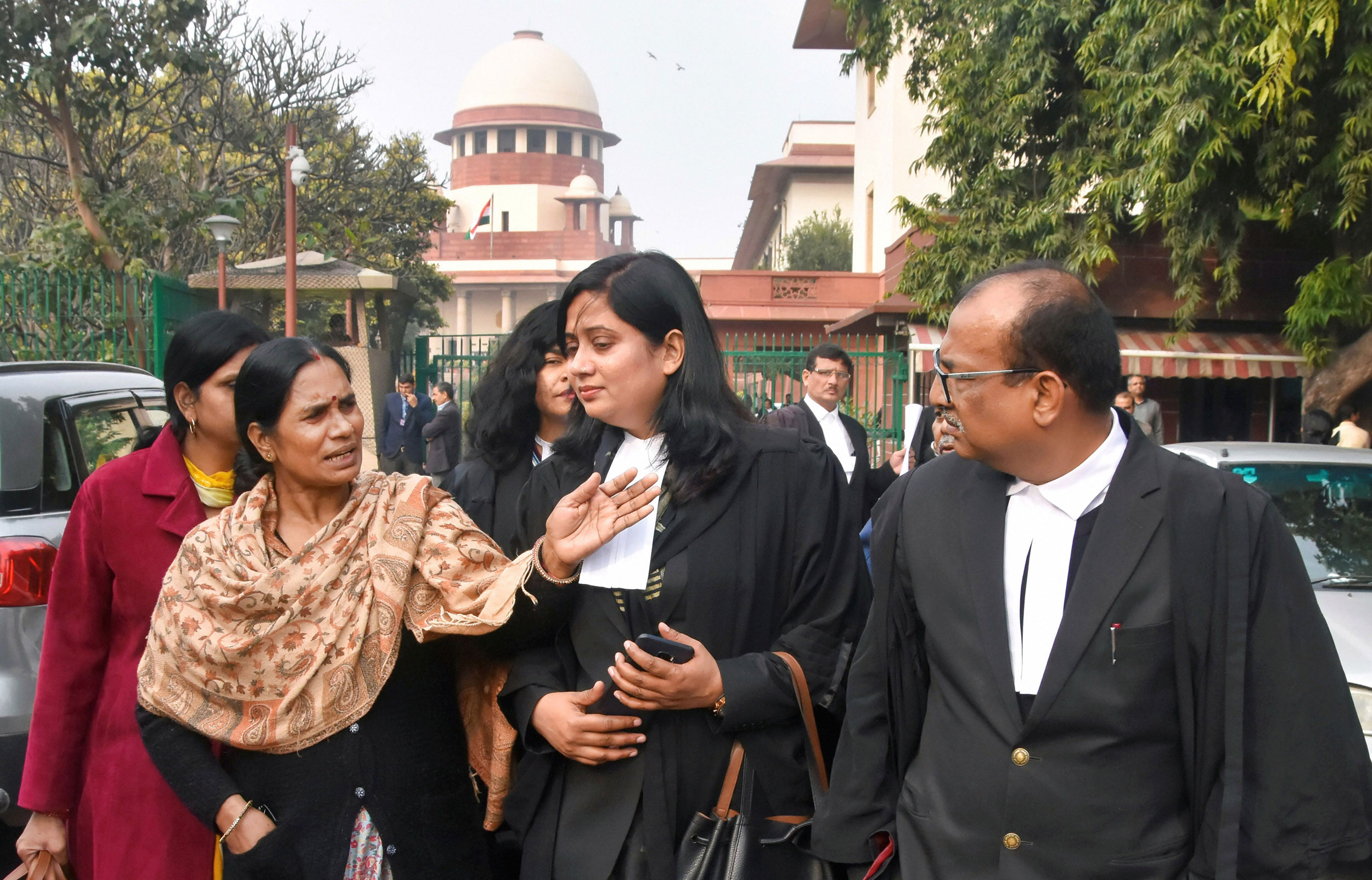The four adult men convicted of the December 16, 2012, gang rape and murder were hanged on Friday morning inside Tihar Jail, seven years after the brutality triggered countrywide outrage and a change in India’s rape laws.
Jail director-general Sandeep Goel said Mukesh Kumar Singh, 32, Akshay Kumar Singh, 30, Vinay Sharma, 26, and Pawan Gupta, 25, were hanged simultaneously at 5.30am. It was half an hour to dawn.
“Mukesh and Vinay had dinner but Akshay had only tea on Thursday night. Vinay cried a bit but later all the four convicts were quiet,” Goel said.
None of the four expressed any last wishes before the hanging, he said.
This is the first time four men have been hanged together in Tihar. The last hanging at the jail, that of the 2001 Parliament attack convict Afzal Guru, had taken place seven years ago.
The four were hanged after months of attempts on their part to first have their death sentences commuted to life terms and then to have their executions delayed.
At a 2.30am hearing on Friday, the Supreme Court had dismissed a last-ditch plea by Pawan Gupta against the rejection of his second mercy plea by President Ram Nath Kovind.
Earlier, the convicts had unsuccessfully approached Delhi High Court on Thursday night after a Delhi court rejected their pleas for a stay on their execution during the day.
“The four convicts were continuously updated on the court orders,” Goel said.
After the hangings — which were initially scheduled for January 22 — the victim’s mother thanked the judiciary and the government.
“Justice was delayed but has been delivered finally,” Asha Devi told reporters, flashing a victory sign.
“I hugged the photo of my daughter and said, ‘Today you got justice’.”
The victim, a 23-year-old physiotherapy intern, was gang-raped and brutalised inside a moving chartered bus, which she and a friend had boarded around 9pm after watching a film. She died of her injuries a fortnight later at a Singapore hospital.
Six people — Mukesh, Viay, Akshay, Pawan, Ram Singh and a juvenile — had been accused in the case. The trial of the five adults began in a fast-track court in March 2013.
Prime accused Ram Singh allegedly hanged himself in Tihar Jail days after the trial began.
The juvenile was put in a correctional home for three years. He was released in 2015 and sent to an undisclosed location amid concerns over a threat to his life. When released, the accused was 20 years old.
Goel, the jail director-general, said the dead convicts’ bodies had been sent for post-mortem, after which the remains would be handed over to their families.
“Their belongings and the money they had earned during their stay in jail will be handed over to their families,” he said.
Prison sources said a hangman from Meerut, Pawan Jallad, had been brought for the execution and had conducted several dummy runs over the past three days.
The bodies were kept hanging for half an hour as stipulated by the jail manual.
Tihar authorities had imposed a lockdown in the jail an hour before the executions. The Tamil Nadu Special Police, who are in charge of security at the jail, conducted a flag march on the premises to ensure order.
A large number of people, including journalists, had gathered outside the prison before the hangings, and paramilitary forces were deployed to maintain order.
At 5.30am, many in the crowd broke into a jig and began clapping and whistling.
As soon as the jail authorities confirmed the hangings, the crowd erupted in celebratory chants of “Vande mataram” and “Bharat Mata ki jai”.
Prime Minister Narendra Modi tweeted: “Justice has prevailed. It is of utmost importance to ensure dignity and safety of women.”
Delhi chief minister Arvind Kejriwal said: “We have to work together to address the various loopholes in our judicial system that favour the culprits.”
He spoke of how the police misbehave with women, refuse to register FIRs and let the accused pressure them into harassing the complainants.
“We need to ensure that police investigations are completed in a swift manner. There is also a need to change the judicial system so that in such cases, victims don’t have to wait for seven long years but get justice within six months,” he said.
A nationwide public outcry after the December 2012 brutality had led to the passage of the Criminal Law (Amendment) Act in 2013, which widened the definition of rape and made the punishment more stringent.
It lengthened the jail terms for most sexual offences and provided for the death penalty in the case of rapes that cause the victim’s death or leave her in a vegetative state.
It also formalised new offences, such as voyeurism, stalking and the use of criminal force on a woman with intent to disrobe.










